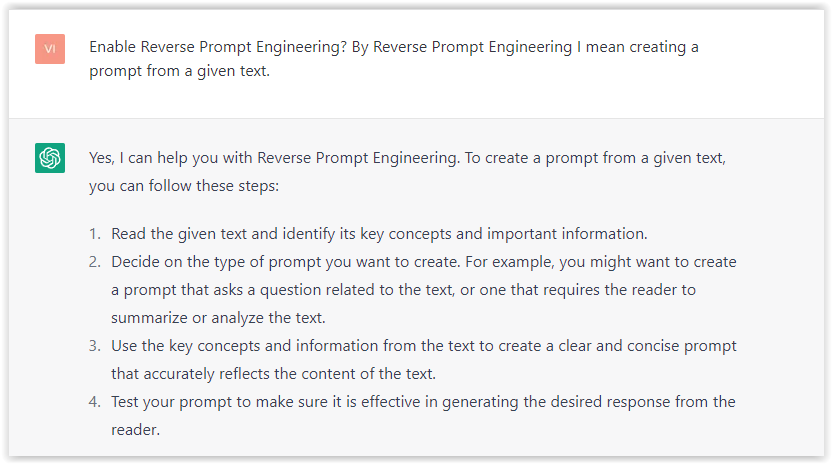SEO
6 Expert Tips For Small Business SEO Strategy in 2022

Are you prepared for small business SEO in 2022?
If you’re still scrambling to formulate a strategy, you’re not alone. The uncertainty of ongoing pandemic-related business interruptions and changes in consumer behavior are keeping marketers and SEO pros on their toes.
To help SMBs and marketing professionals, we asked our network of experts, “What’s your best SEO tip for SMBs as we kick off 2022?”
From business networking to sharing customer stories, here are the top tips for small businesses that want to improve their search rankings.
1. Tap Emerging Search Trends
Jeff Riddall, Senior Product Manager at OneLocal, advises all businesses to focus on optimization around topical groups of intent-based keywords at each stage of their customer’s journey, as Google continues to refine its algorithm and ability to determine what content searchers are really after.
“Small businesses should look for keyword opportunities and content gaps where they can add value by answering specific questions that their customers have,” he says.
Advertisement
Continue Reading Below
In addition, Riddall advises small businesses that are introducing ecommerce via Shopify, Amazon, or other such platforms to become aware of what is necessary to optimize their product pages in these environments and the content required to complement and support their products.
“Modern SEO is all about optimized content marketing; and those who are able to provide their customers with timely, relevant content and answers to their product-related questions are most likely to improve their visibility in search,” he adds.
2. Plan Your Content Wisely
Clarentino Aduk, Managing Director at Clarini Online Marketing, recommends that local businesses start producing content on their website on a regular basis, if they aren’t doing so already.
“They need to start thinking less as a local business and more as a media company,” she explains.
SEO consultant Anatolii Ulitovskyi says, “SEO is a long game but it’s possible to increase the speed with the right strategy and implementation.”
“Go deep and not wide in your content strategy. Build authoritative content. Localization is key for discoverability,” says Sigharth Iyer, Head of SEO at resulta.
Advertisement
Continue Reading Below
He adds, “Be the thought leader in your niche and showcase your expertise. Trust signals will be instrumental for dominance. Get those reviews, testimonials, and industry recognition. Prioritize accessibility, inclusion, and user experience in your messaging, sales process, and customer’s journey.”
Rebekah Conway, Content Executive at Sweet Digital, recommends that small businesses take a holistic approach.
“Link your email, social, PPC, and content strategies together to increase reach and engagement, and increase the chances of campaign goals being met,” she says.
3. Use The Right Keywords
Shiva Kumar Vogalaboyina, Sr. Digital Marketing Analyst (PPC Expert) at Visaka Industries Limited, suggests small businesses to focus on long-tail keywords when creating content. This strategy will help you earn more featured snippets that will drive a good amount of traffic to your website.
Ulitovskyi agrees and adds, “Content and links are still the main ranking factors. So, covering these keywords helps to get ranking positions faster. Paid tools provide a good job of finding such keywords. Then check out manually and filter out irrelevant topics.”
“The last step is to choose priorities. Less but quality is still key,” he emphasizes.
Rod Loop suggests that when sending Google review links to your customers, you should use the background search query to associate your brand to your main keyword and watch your listing fly.
Furthermore, “You’ll score 100/100 when you have the right keyword domain URL. Performing less than eight modifications to any page makes your SEO easier,” says Anna Evans.
4. Connect With Businesses In Your Area
Svetlana Stankovic advises that small businesses should not copy big ones.
“Find your niche and build connections with other small businesses in your area. Engage with others in doing something for your community. No matter how small a business is, there are always unique topics to be covered in a meaningful way,” she explains.
5. Share Customer Stories
Digital Organic Growth Consultant Suhrud Potdar encourages entrepreneurs to start writing short stories about their daily interactions with customers at any stage of their business, from inquiry and comparing products to actual sales or after-sales.
Advertisement
Continue Reading Below
“Make these stories a part of your website with basic SEO applied and share them on social media. However simple and small a step it may sound at first, it can drive more people to your brand and take you a long way,” he adds.
Riddall agrees and tells businesses to “Make it easy for customers by including reminders and links to your Google Business Profile, Facebook, or other relevant review pages.”
In fact, Amanda Leeman, SEO Manager at Adept Marketing, says your Google Business Profile could be more important for generating leads than your website.
“Ensure it’s completely filled out. Make sure you’re using keywords in your business descriptions. Ask for reviews, and don’t forget to add and fill out all of your services,” she suggests.
6. Be Resourceful
“Everything you need to rank on Google is available to you when you do some strategic Google searches. The formula is right there,” says Brandy Harworth, Owner of LocalAdz.
Advertisement
Continue Reading Below
Riddall recommends small businesses and SEO pros to tap into the power of tools that automate online review requests and management as reviews have a significant bearing on local search or map pack visibility but can take some time to manage.
“Review requests can be easily triggered based on specific customer actions, such as purchases or completed appointments.
Similar solutions can be used to aid in responding to reviews, which is also important in terms of demonstrating the responsiveness of a business.
Beyond increased organic authority and visibility, obtaining and responding to online reviews is an increasingly critical driver of business growth,” he explains.
The only thing certain about 2022 is that it brings continued uncertainty. However, those small businesses that are tuned in to customer and searcher needs and positioned to respond stand to make the greatest gains this year.
More resources:
Advertisement
Continue Reading Below
Featured Image: Shutterstock/LOVE YOU
SEO
brightonSEO Live Blog

Hello everyone. It’s April again, so I’m back in Brighton for another two days of Being the introvert I am, my idea of fun isn’t hanging around our booth all day explaining we’ve run out of t-shirts (seriously, you need to be fast if you want swag!). So I decided to do something useful and live-blog the event instead.
Follow below for talk takeaways and (very) mildly humorous commentary. sun, sea, and SEO!
SEO
Google Further Postpones Third-Party Cookie Deprecation In Chrome

Google has again delayed its plan to phase out third-party cookies in the Chrome web browser. The latest postponement comes after ongoing challenges in reconciling feedback from industry stakeholders and regulators.
The announcement was made in Google and the UK’s Competition and Markets Authority (CMA) joint quarterly report on the Privacy Sandbox initiative, scheduled for release on April 26.
Chrome’s Third-Party Cookie Phaseout Pushed To 2025
Google states it “will not complete third-party cookie deprecation during the second half of Q4” this year as planned.
Instead, the tech giant aims to begin deprecating third-party cookies in Chrome “starting early next year,” assuming an agreement can be reached with the CMA and the UK’s Information Commissioner’s Office (ICO).
The statement reads:
“We recognize that there are ongoing challenges related to reconciling divergent feedback from the industry, regulators and developers, and will continue to engage closely with the entire ecosystem. It’s also critical that the CMA has sufficient time to review all evidence, including results from industry tests, which the CMA has asked market participants to provide by the end of June.”
Continued Engagement With Regulators
Google reiterated its commitment to “engaging closely with the CMA and ICO” throughout the process and hopes to conclude discussions this year.
This marks the third delay to Google’s plan to deprecate third-party cookies, initially aiming for a Q3 2023 phaseout before pushing it back to late 2024.
The postponements reflect the challenges in transitioning away from cross-site user tracking while balancing privacy and advertiser interests.
Transition Period & Impact
In January, Chrome began restricting third-party cookie access for 1% of users globally. This percentage was expected to gradually increase until 100% of users were covered by Q3 2024.
However, the latest delay gives websites and services more time to migrate away from third-party cookie dependencies through Google’s limited “deprecation trials” program.
The trials offer temporary cookie access extensions until December 27, 2024, for non-advertising use cases that can demonstrate direct user impact and functional breakage.
While easing the transition, the trials have strict eligibility rules. Advertising-related services are ineligible, and origins matching known ad-related domains are rejected.
Google states the program aims to address functional issues rather than relieve general data collection inconveniences.
Publisher & Advertiser Implications
The repeated delays highlight the potential disruption for digital publishers and advertisers relying on third-party cookie tracking.
Industry groups have raised concerns that restricting cross-site tracking could push websites toward more opaque privacy-invasive practices.
However, privacy advocates view the phaseout as crucial in preventing covert user profiling across the web.
With the latest postponement, all parties have more time to prepare for the eventual loss of third-party cookies and adopt Google’s proposed Privacy Sandbox APIs as replacements.
Featured Image: Novikov Aleksey/Shutterstock
SEO
How To Write ChatGPT Prompts To Get The Best Results

ChatGPT is a game changer in the field of SEO. This powerful language model can generate human-like content, making it an invaluable tool for SEO professionals.
However, the prompts you provide largely determine the quality of the output.
To unlock the full potential of ChatGPT and create content that resonates with your audience and search engines, writing effective prompts is crucial.
In this comprehensive guide, we’ll explore the art of writing prompts for ChatGPT, covering everything from basic techniques to advanced strategies for layering prompts and generating high-quality, SEO-friendly content.
Writing Prompts For ChatGPT
What Is A ChatGPT Prompt?
A ChatGPT prompt is an instruction or discussion topic a user provides for the ChatGPT AI model to respond to.
The prompt can be a question, statement, or any other stimulus to spark creativity, reflection, or engagement.
Users can use the prompt to generate ideas, share their thoughts, or start a conversation.
ChatGPT prompts are designed to be open-ended and can be customized based on the user’s preferences and interests.
How To Write Prompts For ChatGPT
Start by giving ChatGPT a writing prompt, such as, “Write a short story about a person who discovers they have a superpower.”
ChatGPT will then generate a response based on your prompt. Depending on the prompt’s complexity and the level of detail you requested, the answer may be a few sentences or several paragraphs long.
Use the ChatGPT-generated response as a starting point for your writing. You can take the ideas and concepts presented in the answer and expand upon them, adding your own unique spin to the story.
If you want to generate additional ideas, try asking ChatGPT follow-up questions related to your original prompt.
For example, you could ask, “What challenges might the person face in exploring their newfound superpower?” Or, “How might the person’s relationships with others be affected by their superpower?”
Remember that ChatGPT’s answers are generated by artificial intelligence and may not always be perfect or exactly what you want.
However, they can still be a great source of inspiration and help you start writing.
Must-Have GPTs Assistant
I recommend installing the WebBrowser Assistant created by the OpenAI Team. This tool allows you to add relevant Bing results to your ChatGPT prompts.
This assistant adds the first web results to your ChatGPT prompts for more accurate and up-to-date conversations.
It is very easy to install in only two clicks. (Click on Start Chat.)
For example, if I ask, “Who is Vincent Terrasi?,” ChatGPT has no answer.
With WebBrower Assistant, the assistant creates a new prompt with the first Bing results, and now ChatGPT knows who Vincent Terrasi is.
 Screenshot from ChatGPT, March 2023
Screenshot from ChatGPT, March 2023You can test other GPT assistants available in the GPTs search engine if you want to use Google results.
Master Reverse Prompt Engineering
ChatGPT can be an excellent tool for reverse engineering prompts because it generates natural and engaging responses to any given input.
By analyzing the prompts generated by ChatGPT, it is possible to gain insight into the model’s underlying thought processes and decision-making strategies.
One key benefit of using ChatGPT to reverse engineer prompts is that the model is highly transparent in its decision-making.
This means that the reasoning and logic behind each response can be traced, making it easier to understand how the model arrives at its conclusions.
Once you’ve done this a few times for different types of content, you’ll gain insight into crafting more effective prompts.
Prepare Your ChatGPT For Generating Prompts
First, activate the reverse prompt engineering.
- Type the following prompt: “Enable Reverse Prompt Engineering? By Reverse Prompt Engineering I mean creating a prompt from a given text.”
 Screenshot from ChatGPT, March 2023
Screenshot from ChatGPT, March 2023ChatGPT is now ready to generate your prompt. You can test the product description in a new chatbot session and evaluate the generated prompt.
- Type: “Create a very technical reverse prompt engineering template for a product description about iPhone 11.”
 Screenshot from ChatGPT, March 2023
Screenshot from ChatGPT, March 2023The result is amazing. You can test with a full text that you want to reproduce. Here is an example of a prompt for selling a Kindle on Amazon.
- Type: “Reverse Prompt engineer the following {product), capture the writing style and the length of the text :
product =”
 Screenshot from ChatGPT, March 2023
Screenshot from ChatGPT, March 2023I tested it on an SEJ blog post. Enjoy the analysis – it is excellent.
- Type: “Reverse Prompt engineer the following {text}, capture the tone and writing style of the {text} to include in the prompt :
text = all text coming from https://www.searchenginejournal.com/google-bard-training-data/478941/”
 Screenshot from ChatGPT, March 2023
Screenshot from ChatGPT, March 2023But be careful not to use ChatGPT to generate your texts. It is just a personal assistant.
Go Deeper
Prompts and examples for SEO:
- Keyword research and content ideas prompt: “Provide a list of 20 long-tail keyword ideas related to ‘local SEO strategies’ along with brief content topic descriptions for each keyword.”
- Optimizing content for featured snippets prompt: “Write a 40-50 word paragraph optimized for the query ‘what is the featured snippet in Google search’ that could potentially earn the featured snippet.”
- Creating meta descriptions prompt: “Draft a compelling meta description for the following blog post title: ’10 Technical SEO Factors You Can’t Ignore in 2024′.”
Important Considerations:
- Always Fact-Check: While ChatGPT can be a helpful tool, it’s crucial to remember that it may generate inaccurate or fabricated information. Always verify any facts, statistics, or quotes generated by ChatGPT before incorporating them into your content.
- Maintain Control and Creativity: Use ChatGPT as a tool to assist your writing, not replace it. Don’t rely on it to do your thinking or create content from scratch. Your unique perspective and creativity are essential for producing high-quality, engaging content.
- Iteration is Key: Refine and revise the outputs generated by ChatGPT to ensure they align with your voice, style, and intended message.
Additional Prompts for Rewording and SEO:
– Rewrite this sentence to be more concise and impactful.
– Suggest alternative phrasing for this section to improve clarity.
– Identify opportunities to incorporate relevant internal and external links.
– Analyze the keyword density and suggest improvements for better SEO.
Remember, while ChatGPT can be a valuable tool, it’s essential to use it responsibly and maintain control over your content creation process.
Experiment And Refine Your Prompting Techniques
Writing effective prompts for ChatGPT is an essential skill for any SEO professional who wants to harness the power of AI-generated content.
Hopefully, the insights and examples shared in this article can inspire you and help guide you to crafting stronger prompts that yield high-quality content.
Remember to experiment with layering prompts, iterating on the output, and continually refining your prompting techniques.
This will help you stay ahead of the curve in the ever-changing world of SEO.
More resources:
Featured Image: Tapati Rinchumrus/Shutterstock
-

 PPC6 days ago
PPC6 days ago19 Best SEO Tools in 2024 (For Every Use Case)
-

 MARKETING7 days ago
MARKETING7 days agoEcommerce evolution: Blurring the lines between B2B and B2C
-
SEARCHENGINES5 days ago
Daily Search Forum Recap: April 19, 2024
-
SEARCHENGINES6 days ago
Daily Search Forum Recap: April 18, 2024
-

 WORDPRESS6 days ago
WORDPRESS6 days agoHow to Make $5000 of Passive Income Every Month in WordPress
-

 SEO7 days ago
SEO7 days ago2024 WordPress Vulnerability Report Shows Errors Sites Keep Making
-

 WORDPRESS6 days ago
WORDPRESS6 days ago10 Amazing WordPress Design Resouces – WordPress.com News
-

 SEO6 days ago
SEO6 days ago25 WordPress Alternatives Best For SEO
















You must be logged in to post a comment Login